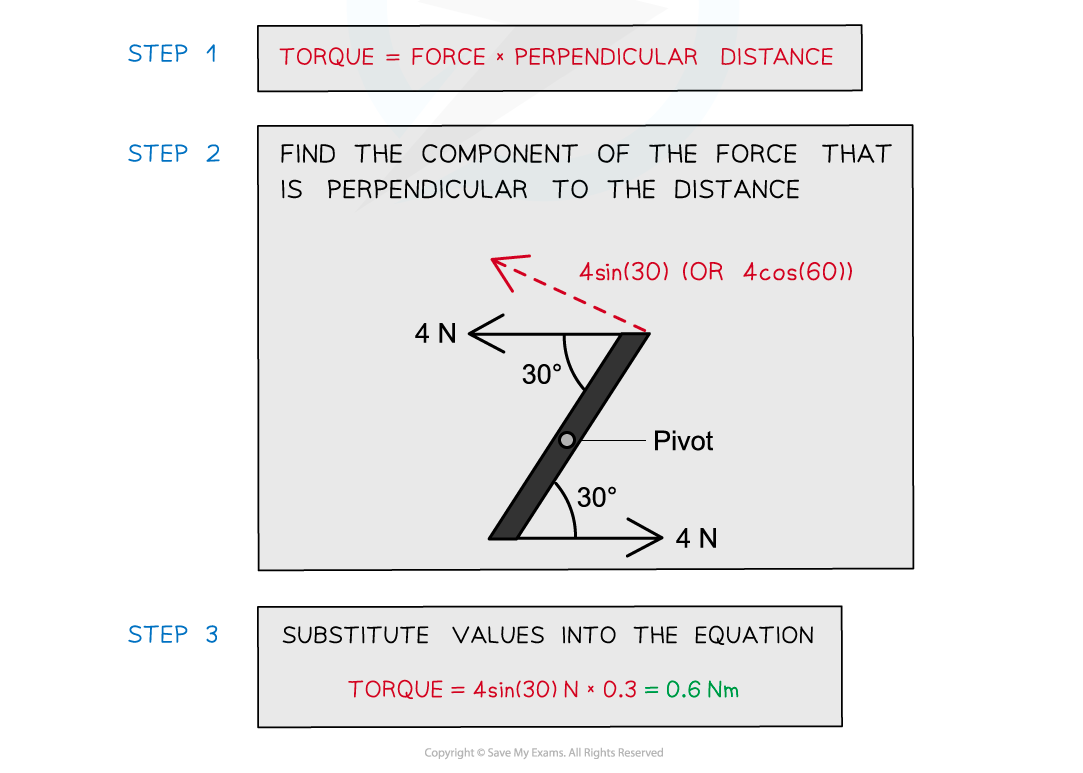Couples & Torque (OCR AS Physics): Revision Note
Exam code: H156
Couples & Torque
Couples
A couple is a pair of equal and opposite coplanar forces that acts to produce rotation only
A couple consists of a pair of forces that are:
Equal in magnitude
Opposite in direction
Perpendicular to the distance between them

A couple must consist of two equal and opposite forces separated by a perpendicular distance
Couples produce a resultant force of zero, so, due to Newton’s Second law (F = ma), the object does not accelerate
The size of this turning effect is given by its torque
Unlike moments of a single force, the moment of a couple doesn’t depend on a pivot
The moment of a couple is equal to:
Force × Perpendicular distance between the lines of action of the forces
Torque
The moment of a couple is known as a torque
The torque of a couple can be calculated with the following equation
τ = Fd
Where:
τ = torque (N m)
F = one of the forces (N)
d = perpendicular distance between the forces (m)
Worked Example
Which pair of forces act as a couple on the circular object?

Answer: A
In diagram A, the forces are:
Equal in size
In opposite directions
Perpendicular to the distance between them
B is incorrect as the forces are in the same direction
C is incorrect as the forces are different in size
D is incorrect as the distance between the forces is not perpendicular
Worked Example
A steering wheel of diameter 40 cm and the force of the couple needed to turn it is 10 N. Calculate the torque on the steering wheel.
Answer:

Worked Example
A rule of length 0.3 m is pivoted at its centre. Equal and opposite forces of magnitude 4.0 N are applied to the ends of the ruler, created a couple as shown below.

What is the magnitude of the torque of the couple on the ruler when it is at the position shown?
Answer:

Examiner Tips and Tricks
The forces given might not always be perpendicular to the distance between them. In this case, remember to find the component of the force vector that is perpendicular by resolving the force vector. The forces that make up a couple cannot share the same line of action which is the line through the point at which the force is applied. An example of this is shown in the diagram below:


Unlock more, it's free!
Did this page help you?